- Details
- Category: Senator Julie A. Morrison News

SPRINGFIELD – State Senator Julie Morrison (D-Lake Forest) released the following statement after former Gov. Rod Blagojevich was commuted by President Donald Trump Tuesday:
“The commutation of Rod Blagojevich’s sentence by President Trump is yet another reason ethics reform must be passed at both the state and federal level. We must pass ethics reform during this legislative session to ensure we never have another case like Blagojevich’s. We must also hold elected officials to the highest standards and work to end political corruption.”
- Details
- Category: Senator Cristina Castro News
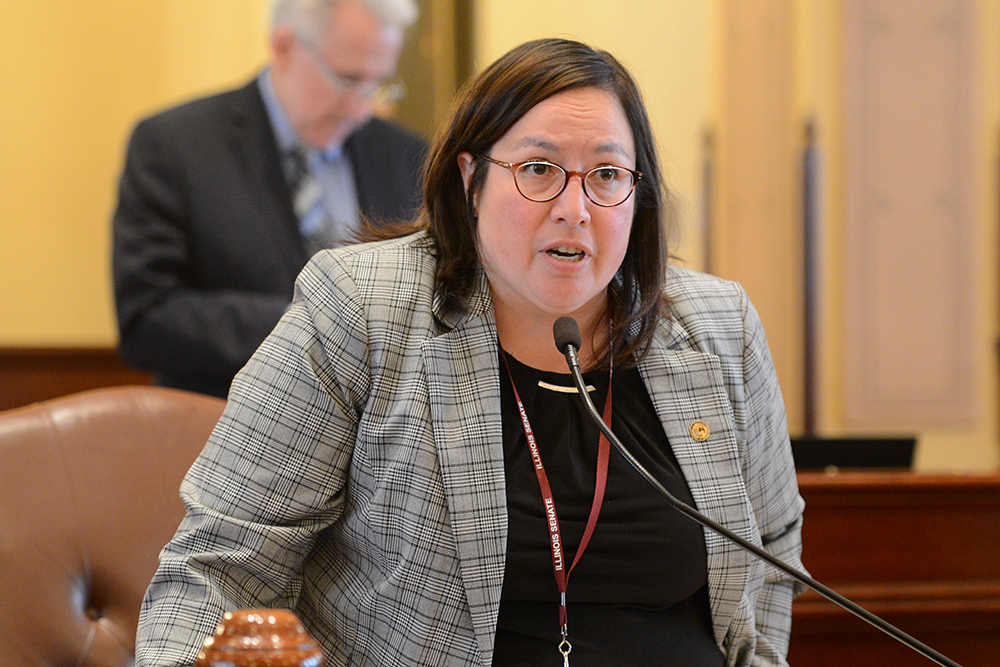
SPRINGFIELD – Disgraced former Illinois Governor Rod Blagojevich’s 14-year prison sentence was commuted by President Donald Trump Tuesday after just over seven years served. State Senator Cristina Castro (D-Elgin), who serves on the Joint Commission on Ethics and Lobbying Reform, issued the following statement:
“Rod Blagojevich’s sentence was commuted because he is friends with the president and appeared on his reality show, and no other reason. The misdeeds he committed while governor of our great state are disgraceful and embarrassing, and it’s a shame that his friendship with the president affords him the luxury of not facing the full consequences of his actions.”
- Details
- Category: Senator Heather A. Steans News
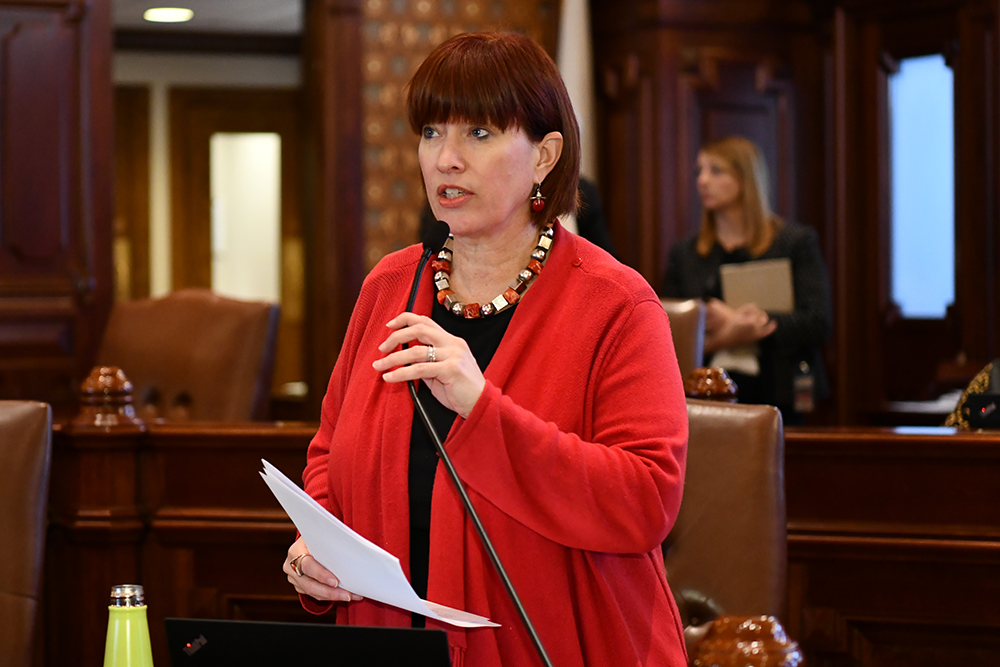
“We should not have needed a court order to tell us to do this.”
SPRINGFIELD — Responding to a 2017 court order that ruled Illinois has not fulfilled its end of an agreement to better care for the developmentally disabled, State Senator Heather Steans (D-Chicago) passed legislation out of the Illinois Senate today to give the people who take care of their day-to-day needs a raise.
“Direct care workers in these facilities are feeding, clothing, bathing, monitoring, diagnosing and treating people with developmental disabilities and complicated medical conditions, and they’re currently doing that for less pay than the average receptionist,” Steans said. “They make less than Chicago’s minimum wage. It is a source of burnout, of turnover, of resentment. The situation has to change – both for the workers and the people they care for.”
Read more: Steans pushes raise for workers who care for people with disabilities
- Details
- Category: Senator Patrick Joyce News

PARK FOREST – Senior citizens who have qualified for property tax exemptions in Cook County will only need to reapply one more time, State Senator Patrick Joyce (D-Essex) announced.
Public Act 101-0622 removes the requirement that recipients of the Senior Homestead Exemption in Cook County reapply for the exemption every year.
“Senior citizens in the South Suburbs are going to have a big weight lifted off their shoulders next year,” Joyce said. “I’m pleased that Illinois is taking steps – even small ones – to correct our broken property tax system.”
Read more: Senior tax exemptions will now renew automatically
- Details
- Category: Senator Elgie R. Sims Jr. News
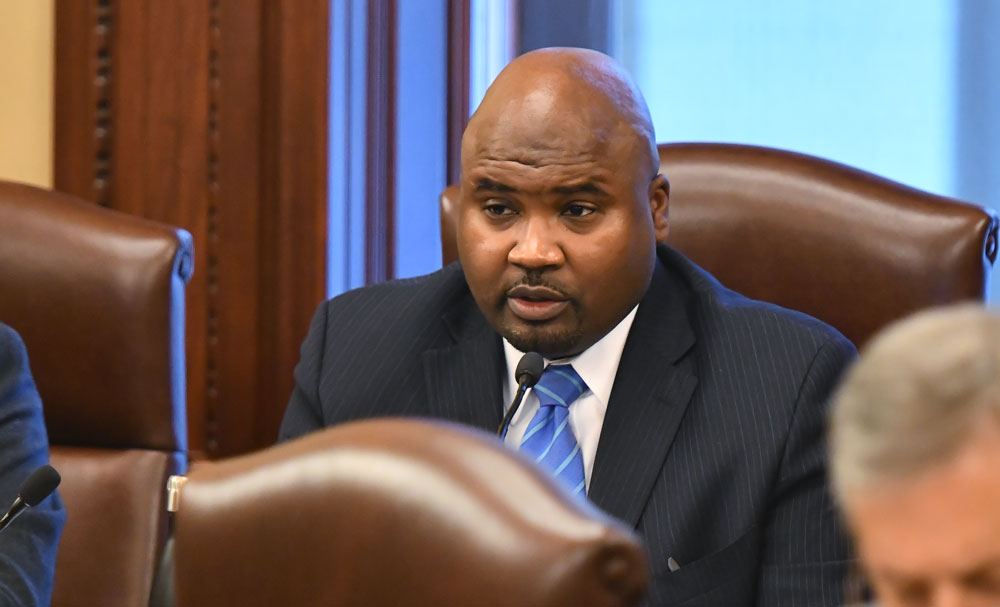
CHICAGO — A joint committee heard feedback from witnesses on what the current state of criminal justice reform in Illinois.
The hearing was called by co-chairs State Senator Elgie R. Sims, Jr. (D-Chicago) of the Senate Criminal Law Committee, State Senator Robert Peters (D-Chicago) of the new Senate Public Safety Special Committee and State Representative Justin Slaughter (D-Chicago) of the House Judiciary-Criminal Committee.
“Hearing all sides of the issue is crucial to working toward a system that is fair and just,” Sims said. “We have to work together to develop a focused strategy. That is the only way we will protect our communities, ensure fairness in sentencing and allow for life after prison.”
Read more: In push for reform, joint committee hears from people affected by criminal justice system
- Details
- Category: Senator Patricia Van Pelt News

SPRINGFIELD – State Senator Patricia Van Pelt (D-Chicago) is leading an initiative with the Department of Human Services that will expand eligibility for special education facilities.
The proposed legislation would allow people with an orthopedic or other physical disability to attend the Illinois Center for Rehabilitation and Education-Roosevelt.
“As we become more knowledgeable about various kinds of disabilities, it is important to revise our policies so that they are as inclusive as need be,” Van Pelt said. “Our understanding has grown, so our legislation must be changed to address that.”
Read more: Van Pelt and DHS expanding services for persons with disabilities
- Details
- Category: Majority Report
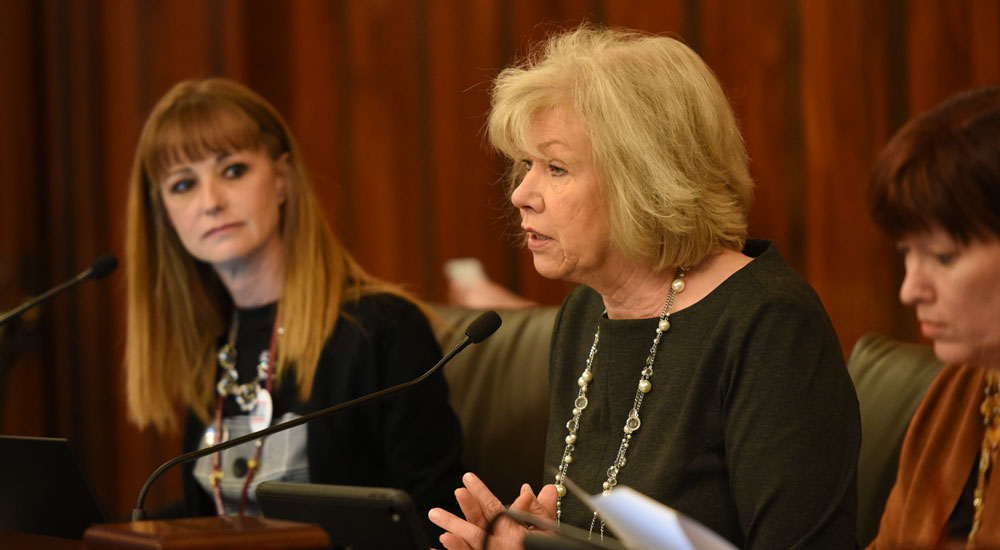
Senators call for answers on DCFS insurance switch
SPRINGFIELD — Following a glitch that left more than 2,500 adopted children and former foster children without insurance for days, State Senators Julie Morrison (D-Deerfield) and Heather Steans (D-Chicago) led a conversation about the issue and the oversight of Medicaid managed care.
“The state is responsible for these children and must make sure they have access to health care,” Morrison said. “I wouldn’t want my own child to be enrolled in this poorly managed program.”
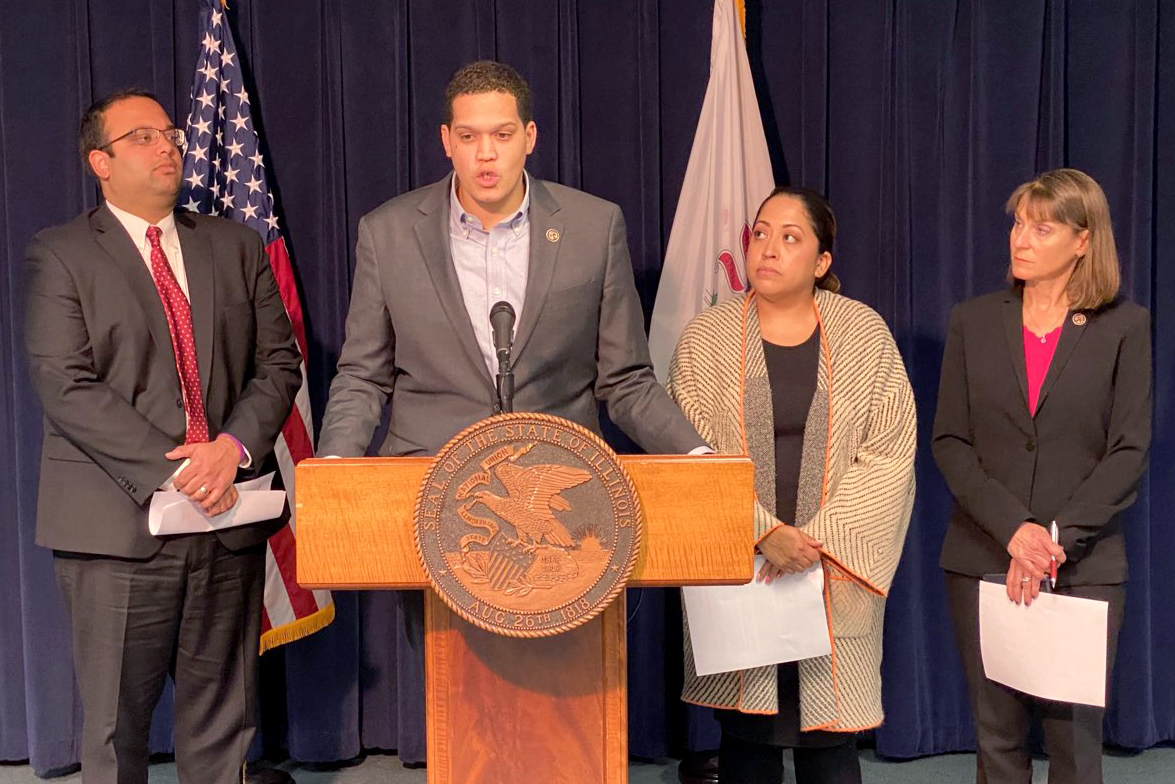
Senate Dems unveil public safety priorities
CHICAGO — In an effort to improve safety in communities and reform the criminal justice system, the Illinois Senate announced the formation of the Special Committee on Public Safety Thursday.
The committee, chaired by State Senator Robert Peters (D-Chicago), will be tasked with hearing a number of measures, including one to put a stop to cash bail.
“I’ve dedicated my adult life toward the fight to reimagine and to win real safety and justice, and last year I passed several laws with this goal in mind, including one to abolish private detention centers,” Peters said. “I’m thrilled to have the opportunity to personally head up the Special Committee on Public Safety, and I am confident that the committee will lead to a society that is fair, equitable, just and, most importantly, safe.”
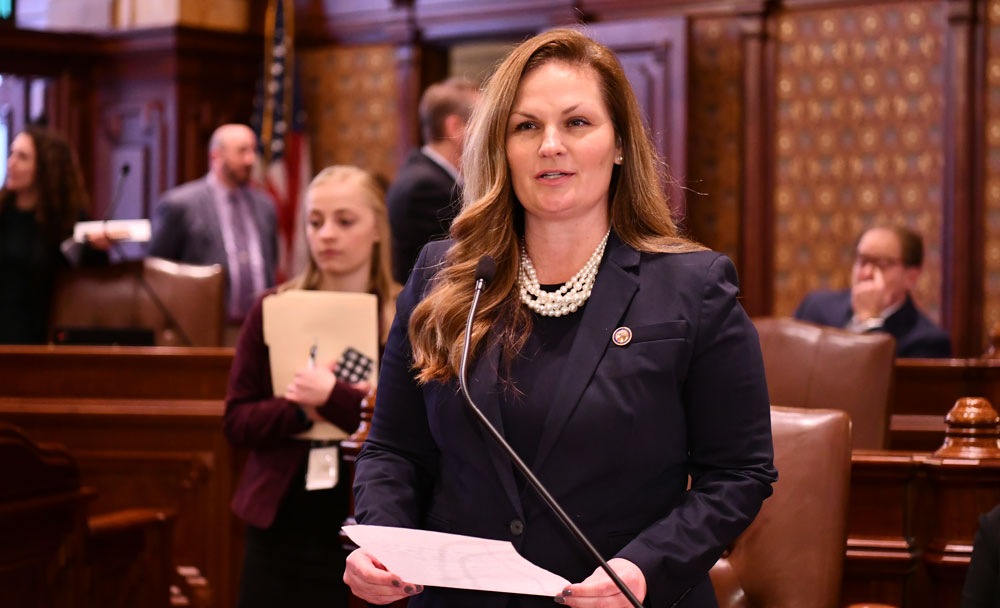
Crowe secures override protecting aviation repair jobs
SPRINGFIELD — Recognizing the necessity of the thousands of highly-skilled, highly-paid jobs jet repair companies provide to people in the state, the Illinois Senate overrode the governor’s veto of House Bill 3902 in a bipartisan manner Wednesday.
State Senator Rachelle Crowe (D-Glen Carbon) led the efforts to protect jobs in the Metro East.
“I refused to sit idly by and allow thousands of people to lose their jobs because of a mistake by a former administration,” Crowe said. “Labor workers in the aviation repair industry contribute vital economic growth in the Metro East region and across the state, and this measure is an affirmation of support to them and their families.”

In case you missed it
MEMBERS IN THE NEWS
Senator Mattie Hunter, Chicago: Will lawmakers finally put the brakes on red-light cameras? | Chicago Sun-Times
Senate Majority Leader Kimberly Lightford, Maywood: Sen. Lightford honors longtime friend Greg Reives | WGEM NBC
Senator Andy Manar, Bunker Hill: Lawmaker floats plan to cut prescription drug prices | The State Journal-Register
Copyright 2020 - Illinois Senate Democratic Caucus - All Rights Reserved
- Details
- Category: Senator Melinda Bush News
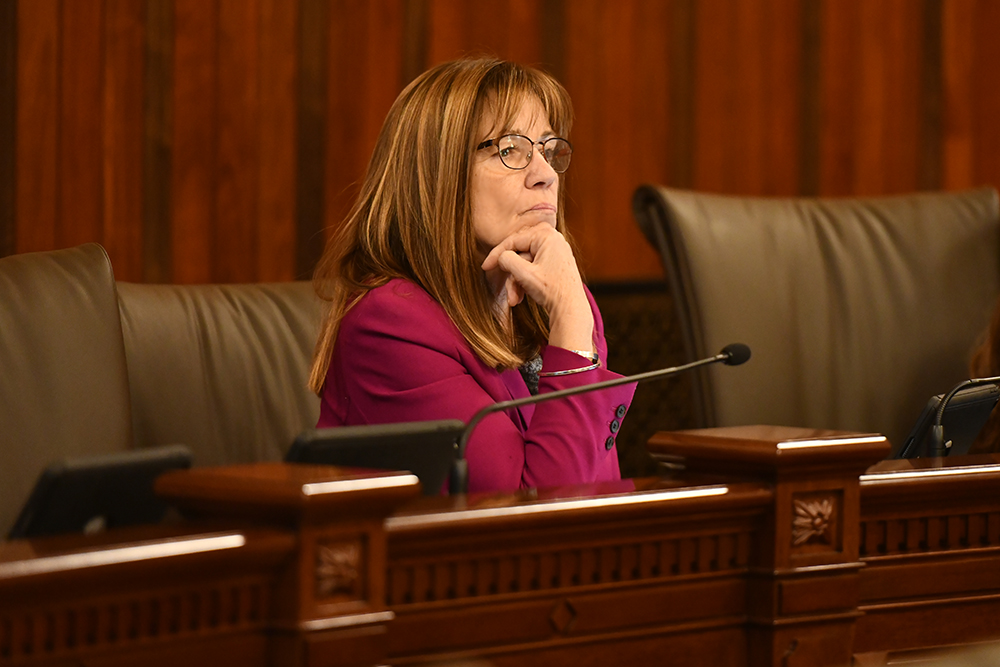 GRAYSLAKE – State Senator Melinda Bush (D-Grayslake) introduced a package of legislation giving more power to the state ethics commission to weed out corruption.
GRAYSLAKE – State Senator Melinda Bush (D-Grayslake) introduced a package of legislation giving more power to the state ethics commission to weed out corruption.
“I’ve been working with advocates for the last three years to clean up corruption and finally hold people accountable,” Bush said. “In light of the recent revelations involving former members of the General Assembly, we can’t allow this shameful behavior to continue. The only way to stop it is to give our watchdogs more power to investigate and take independent action.”
Read more: Bush targets corruption with legislative package giving more power to ethics commission
More Articles …
Page 712 of 763